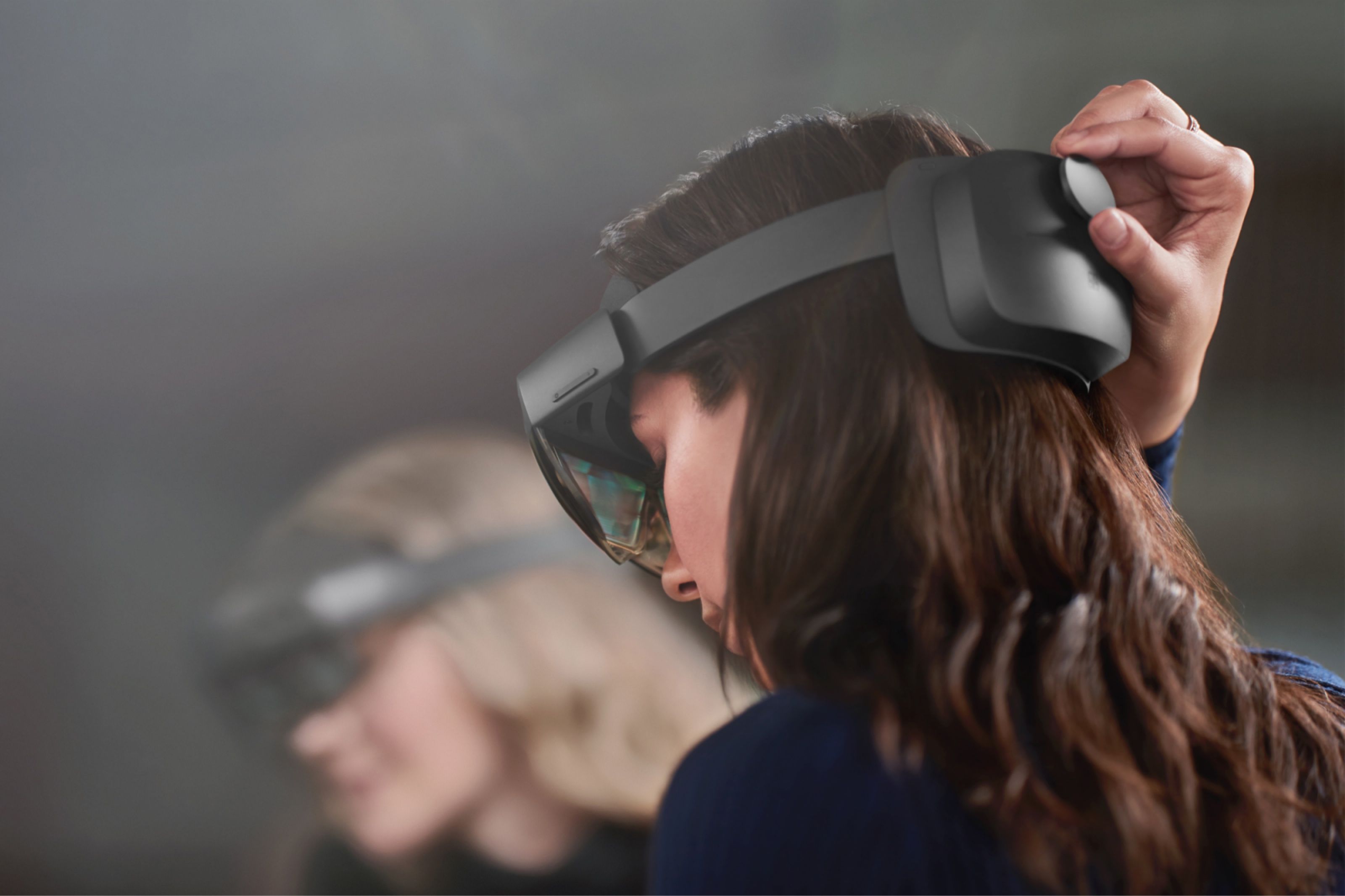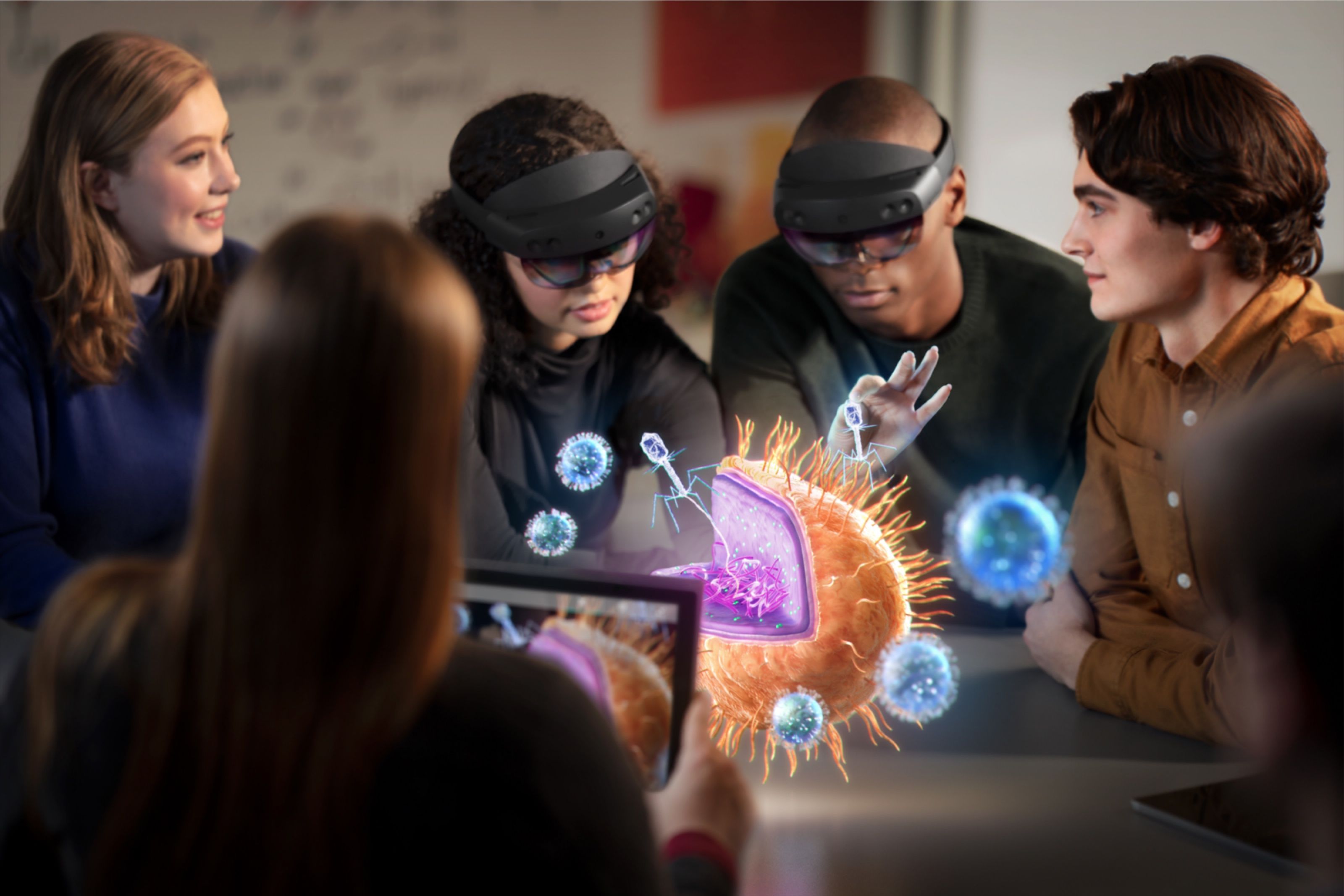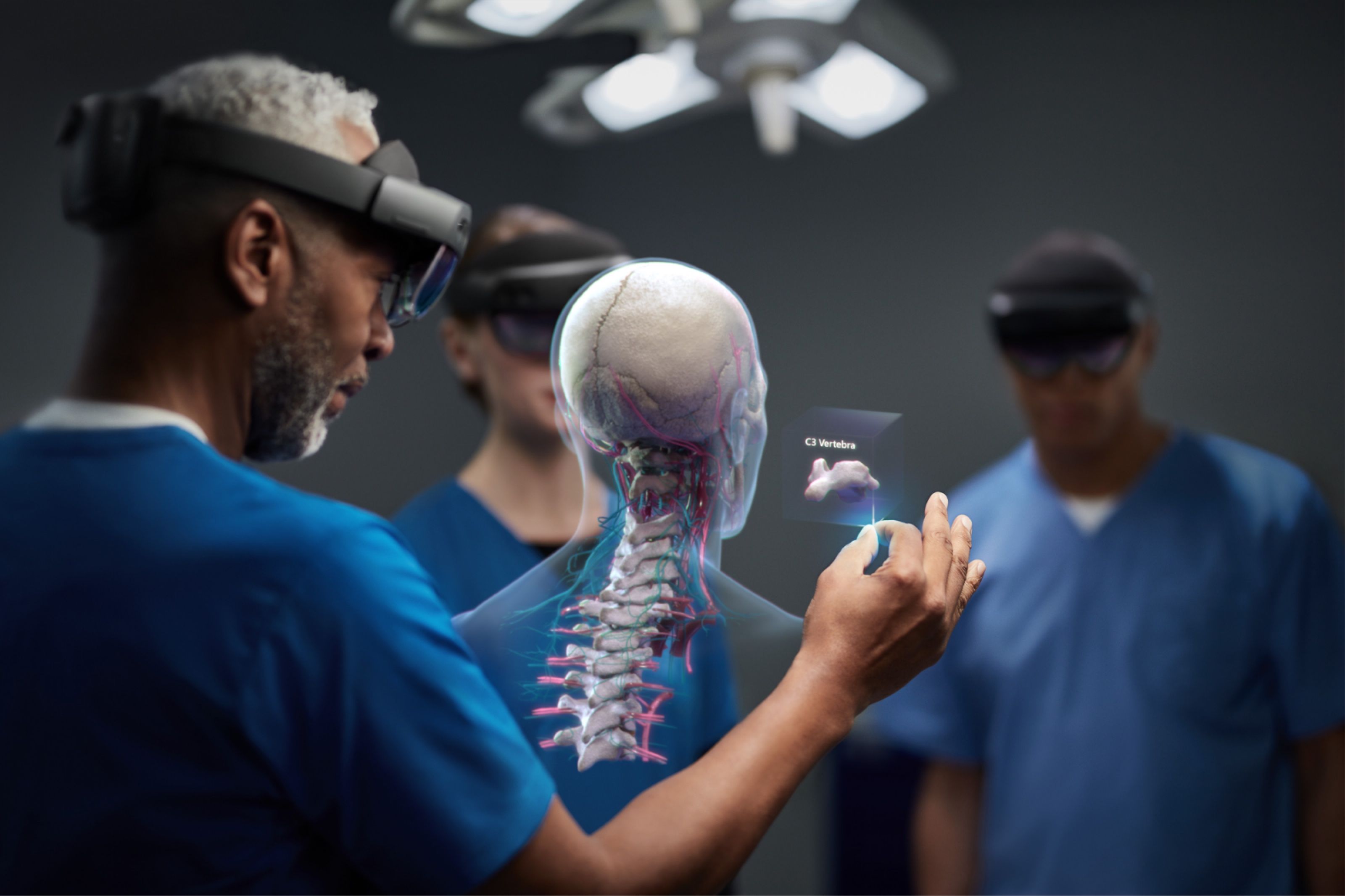Microsoft's director of communications, Greg Sullivan, has told Pocket-lint that the company hopes HoloLens will be great for consumers one day, but for the time being that's a long way off.
"If the question is whether this technology is going to be a consumer thing the short answer is yes, absolutely. But if the question is if HoloLens 2 is a consumer device, then probably not," Sullivan explained when we asked him when we would see HoloLens 2 in homes rather than engineering facilities.
The new device - shown off at the Microsoft's press conference at Mobile World Congress - ushers in a new era for the augmented reality headset as it gains a number of enhancements and improvements following its original announcement in 2015.
Not for consumers just yet, but one day...
Talking to Pocket-lint, Sullivan confirmed that the main use case for now will be in enterprise and business although hopes that one day that will change.
"We firmly believe the answer is yes this will be a consumer device, but we think that the journey is probably measured in years."
The reason, cites Sullivan, is that HoloLens is likely to be too expensive for most consumers looking to enjoy augmented reality from Microsoft.
"If I buy a HoloLens 2 today and bring it home for my son to play games, it's difficult for it to pay for itself very quickly. But in the case of our commercial customers if they can do things they couldn't before or extend the expertise of people around the world then it's a lot easier to justify, and the return on investment for a commercial customer is so profound that these things pay for themselves very quickly, which is not necessarily the case in the consumer scenarios."
Economies of scale
There is hope though. Sullivan believes over the long term, as with many other technologies, we'll see the economies of scale bring the price down to make it affordable not only for more businesses - perhaps your local garage when you go to fix your car - but also consumers too.
It's an all too familiar story. Many technologies over the years start out expensive or aimed at business users, before becoming viable for consumers as they become more affordable.
When PCs first appeared they were to be found in accounting departments rather than at being used at home to play games - the same goes for BlackBerry smartphones or DSLRs for professional photographers.
Epic Games is onboard though
Those signals involved Epic Games CEO Tim Sweeney appearing on stage at the launch event.
"Although I am not here to announce a game today, I am here to announce that Epic will support HoloLens in all of our endeavours," explained Sweeney to the audience, Pocket-lint included, hinting that he too sees that HoloLens 2 has potential for consumers but not at the moment.
He also added that he believes "AR is going to be the primary platform of the future for both work and entertainment."
For now though, the bad news is that we might have to wait years before HoloLens is as accessible to consumers as the mobile phone. There is some light at the end of the tunnel however: the devices should be considerably better by then.
What's in store for the future?
"We would love it if the HoloLens 2 looked like a pair of reading glasses, and had a two-month battery life," Sullivan tells us with the glint of the future in his eyes.
"If you extrapolate from the historical run rate then the answer is it is possible. You are seeing storage, networking, and other fundamental technologies that enabled this device progressing, not necessarily at the same slope as Moore's Law for semiconductors, but those are all accelerating, or at least improving at a pretty good rate. If you slide that out over a number of years the answer is yes, we will get to this point."
Then there's the even longer view:
"Alex Kipman [Technical Fellow for Mixed Reality and AI at Microsoft and considered the main brain behind the HoloLens project] will tell you that someday HoloLens won't be even in the picture, it will just be imbued in the things around us and digital information will just be able to appear in context wherever you are and you won't need to wear anything on your head," says Sullivan before adding "that's more than a couple of years away, but Alex thinks about those things that are way, way over the time horizon. That's the logical progression."
Of course, there is nothing stopping consumers buying the HoloLens 2 today if they've got $3,500 to spare, but for Microsoft, for the time being, the focus is very much on enterprise and business for the near future.



